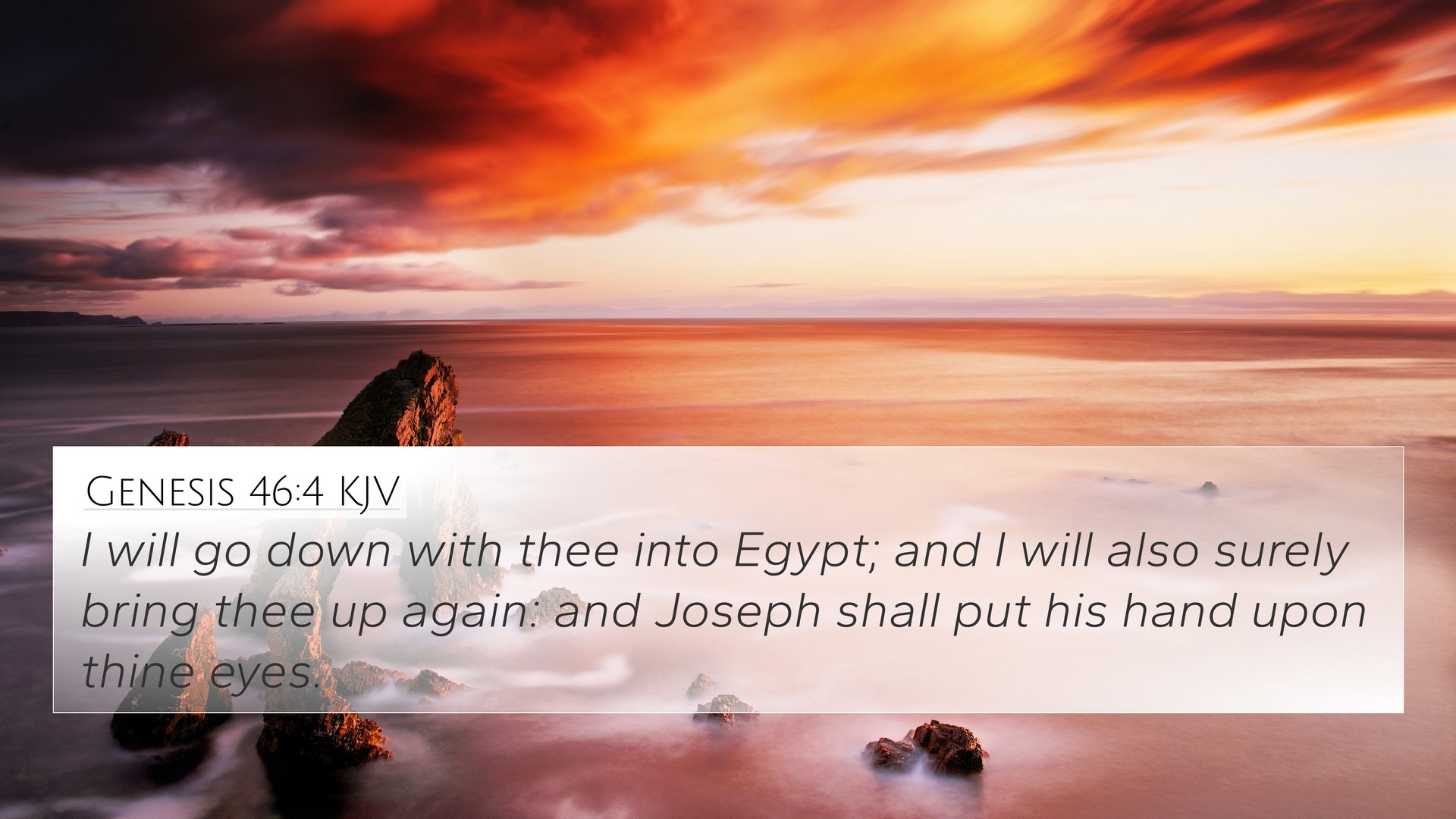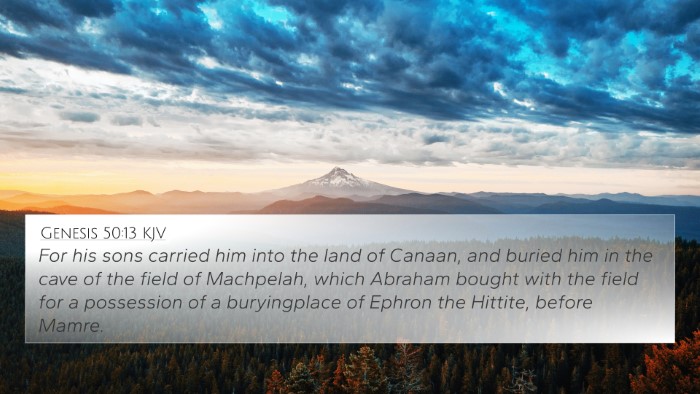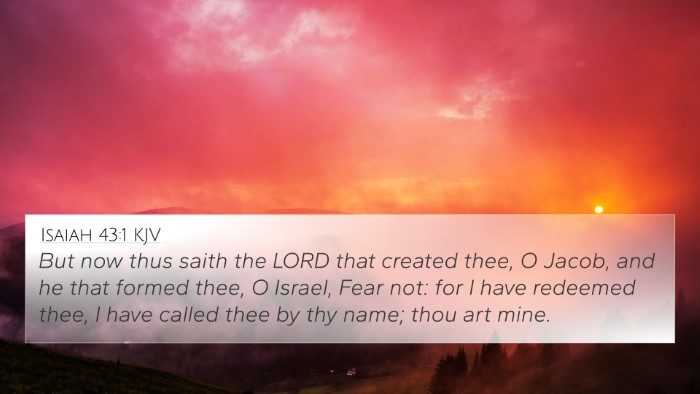Understanding Genesis 46:4
Genesis 46:4 states: “I will go down with thee into Egypt; and I will also surely bring thee up again: and Joseph shall put his hand upon thine eyes.” This verse is part of the narrative where God assures Jacob of His presence and promises as Jacob prepares to move to Egypt with his family.
Meaning and Interpretation
The verse carries significant weight in its assurances and themes, centralizing on God's promise and the reassurance given to Jacob.
- Divine Presence: God promises that He will accompany Jacob to Egypt, highlighting His constant presence in times of transition and uncertainty.
- Promise of Return: The assurance of returning signifies hope, reinforcing that even in foreign lands, God’s plans remain intact.
- Joseph’s Role: The mention of Joseph's hand being placed upon Jacob's eyes symbolizes comfort at the end of life and signifies reconciliation.
Insights from Commentaries
Matthew Henry emphasizes the comfort found in God’s promise. He points out that God does not merely abandon His people when they face hardships or changes, but rather accompanies them to guide and protect.
Albert Barnes provides a detailed examination of the theological implications. He notes that the journey to Egypt represents both physical movement and spiritual significance—a move that indicates God's providential care even during difficult transitions.
Adam Clarke elaborates on the emotional dimensions of the verse, particularly in the context of family. He interprets “Joseph shall put his hand upon thine eyes” as a tender final act that signifies love and closure, emphasizing familial bonds during life's transitions.
Bible Verse Cross-References
To deepen the understanding of Genesis 46:4, one can explore various Bible verses that correlate with its themes of divine presence, reassurance, and care:
- Genesis 28:15: “And, behold, I am with thee, and will keep thee in all places whither thou goest.” — God's promise of presence.
- Exodus 3:17: “And I have said, I will bring you up out of the affliction of Egypt…” — A similar promise of deliverance.
- Psalm 23:4: “Yea, though I walk through the valley of the shadow of death, I will fear no evil: for thou art with me.” — Assurance of God’s presence in dark times.
- Matthew 28:20: “...lo, I am with you always, even unto the end of the world.” — New Testament confirmation of God’s perpetual presence.
- Romans 8:28: “And we know that all things work together for good to them that love God…” — Assurance of God’s sovereign care.
- Hebrews 13:5: “For he hath said, I will never leave thee, nor forsake thee.” — A reiteration of God’s faithfulness.
- Philippians 1:6: “Being confident of this very thing, that he which hath begun a good work in you will perform it until the day of Jesus Christ.” — God’s commitment to His people.
Theological Themes
This verse offers rich theological themes worthy of reflection:
- Faith in God's Promises: Trusting that God will fulfill His promises, as seen throughout scripture.
- God's Sovereignty: Recognizing control in life’s events, including migrations and life changes.
- Family and Relationships: The importance of familial ties and emotions in the context of God's involvement in our lives.
Using Bible Cross References
Utilizing cross-references becomes a valuable tool for studying scripture. Through Bible concordance and Bible cross-reference guides, one can uncover the interconnections that deepen understanding. Here are some insights on how to effectively cross-reference Bible verses:
- Identify Themes: Look for major themes in the verse that can be linked to other scriptures.
- Use Bible Study Tools: Employ tools such as concordances and cross-reference systems available in various editions of the Bible.
- Study Contexts: Consider the surrounding verses for a broader understanding within its chapter.
- Explore Intertextual Connections: Identify connections between Old and New Testament scriptures to build a comprehensive view.
Conclusion
Genesis 46:4 serves as a profound reminder of God's presence and promises through changing circumstances. By employing scriptural cross-referencing, readers can unveil deeper insights and linkages across the Biblical text, enhancing their understanding of God's commitment and care.











